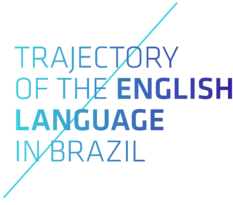“A woman’s place is wherever she wants it to be”
Schools should offer horizons for the future of students. Comment on the various professions and the possibilities of acting in adult life. More than that, teaching should be honest and talk about the difficulties that many people have to face due to class, gender and race. It was with this in mind that the #ElasNaEscola project was created, an initiative by the NGO #ElasNoPoder to democratise knowledge about different life choices for women. The target audience was black girls from public schools in Brasilia and its satellite cities.
“I am a geologist and mathematics teacher. I talked to the participants about the front of black women in exact disciplines predominantly dominated by white men”, reports Estefany Alves, one of the volunteers of the #ElasNaEscola project.
Estefany said she saw the girls’ evolution over the course of the meetings. “They were a little insecure at first (…) At first, many didn’t want to talk about themselves or their ambitions. And then, on the same day, at the end of the meeting, they were already full of friendship. It was very interesting to present women in places of power, and for them to see themselves there and say: ‘I also want to be a lawyer, I also want to be a politician, I also want to be a teacher, I want to be a cook’”.
Camilla Ferreira Alves, a volunteer in the organisational part, talks about how the project helped the participants to broaden their visions of the world. “I realised that it was an opening of vision to other perspectives. That it is not only the white male gender that is present there, but also that there are black women working in various areas. In high school we only see textbooks talking about the white man, and about the man in science. Every time we go to talk about women, everyone says ‘ah, I’ve never heard of it’”.
Language teaching was also relevant to the project. Estefany explains that “the vast majority of participants did not even know what the language centre was. We had a meeting in one, and then they said ‘wow, is there a language centre in Ceilândia? Can I take a free class outside my school?’ So, it was something they didn’t really know about.”
In addition to English language teaching, the project discussed different forms of representation and insertion in society, based on contact with older people. “There was a guest who was an entrepreneur and loctician. The girls loved talking about identity and hair and that sort of thing. On the same day there was a journalist, and it was really cool, because two girls said they wanted to pursue this profession”, says Estefany.
Difficulties were also addressed. With a dialogue approach, the girls were encouraged to question the world around them, from an empowering perspective. “It’s really cool to see this evolution. At the first meeting they didn’t ask any questions that were too tense to answer. On the last day, they were already speaking a lot more. They asked, ‘Why was it easy for you? And where did you come from? Did you study in public or private schools? How was that?’ Then we can see that they were already creating an awareness about class. It is not because we are all black or women that we started from the same point”.
Another achievement of the programme was expanding the students’ vision, demonstrating the importance of different professions. “[At first] they wanted to be a lawyer and a judge. It was cool for us to show them that spaces of power are several spaces. That the profession of teacher or cook can also be a space of power. On the last day, a girl commented on this. We were talking about various professions, and she said ‘ah, the woman who is making lunch’. It was really cool for her to see that this can also be a space of power”.
The project impacts the lives of these girls, enhancing their dreams, aware of the difficulties and some ways to face them. “An action always has a reaction. It is positive to show children the reality of the world, which is not just restricted to what they see, which is not just a white male scientist, but that there are also black women with power in various areas”, Camilla comments. After all, a woman’s place is wherever she wants to be. Or at least, that’s how it has to be.

